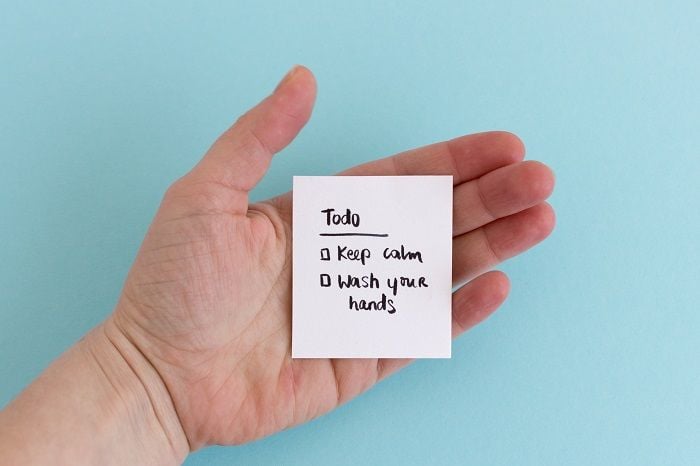Dr. Helane Fronek advises how the practice of mindfulness can protect our sanity and allow us to function more thoughtfully and productively even through the COVID-19 pandemic.

The coronavirus pandemic has catapulted us into uncertain territory. We’re struggling to find our bearings and determine how to navigate our fear, the conflicting news, and the real risk that we, as healthcare providers, face. Physicians’ “duty to treat” is thoughtfully discussed by David Orentlicher, MD, JD in the November 2018 issue of American Journal of Public Health. He assures us that, although 600 civilian physicians in the US died during the Spanish flu epidemic 100 years ago, advances in medications, vaccines, ICUs and protective gear resulted in few physicians succumbing to recent global infections. That opinion, however, emphasizes those things we’re concerned about that are less available in the current epidemic.
In addition to our own health, we fear for the health of our patients and our practices as we close offices, furlough workers, and wonder how we will pay our bills. As attention is focused on those infected with coronavirus, morbidity and mortality from other causes will rise as patients may not have access to and we may not have resources for treatment for other conditions. There is already a shortage of hydroxychloroquine, leaving some patients with autoimmune conditions without needed medication.
Most physicians share a belief in delayed gratification. We invested a great deal of time and money into our careers, believing this would ensure a comfortable living and a secure retirement. As the stock market plummets and our retirement dreams become less assured, our safety and security feel threatened.
One benefit of times like these is that we often rediscover what is most important to us. Sheltering at home, we may spend more time with loved ones—in person or over phone or video chat. Unable to continue the frenetic pace many have become accustomed to, our lives become simpler. Our environment may improve with fewer plane trips and less car travel. Hopefully, we realize that control is an illusion and can let go of the incessant planning we engage in. After feeling frustrated that his carefully created plans had disintegrated, a friend accepted that he couldn’t truly control much in his life. He is sleeping better than he has in years.
When those inevitable fears come up, mindfulness can protect our sanity and allow us to function more thoughtfully and productively. Bringing ourselves back to what is actually happening in the present moment can interrupt our often-automatic rush to a fear-filled future or remorse-riddled past. Only the present moment is real, and it’s the only moment in which we can actually act.
The three components of mindful self-compassion can also be useful:
- Mindfulness encourages us to feel our emotions and helps us recognize we are suffering. When stuck in fear or despair, we are suffering. Naming it helps us accept that reality.
- Common humanity reminds us that, as humans, we all experience times of suffering. We are not alone.
- And self-compassion encourages us to speak kindly to ourselves, rather than in the usual harsh, chastising manner we frequently use. We can also offer ourselves a soothing touch, like a hug or simply placing our hand over our heart.
None of us has lived through a time quite like this. The demands of this epidemic will undoubtedly call upon us—to step forward to help, support, encourage, and comfort. And while this situation may be unprecedented, we have each been called upon to do just those things, repeatedly, in our careers. Let’s trust those qualities of courage, compassion, creativity, thoughtfulness, and resilience that have worked for us before and allow them to guide us through this time as well.


